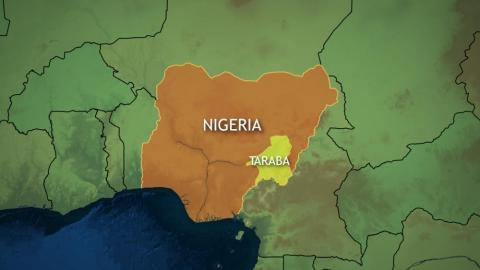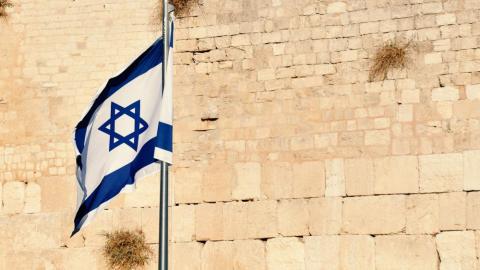
'Muslim Bandits' Kill 10 in Attacks Targeting Nigerian Christian Communities
At least 10 Christians were killed on Nov. 24 when suspected Fulani herdsmen and other terrorists attacked villages in Taraba state, Nigeria.
"Rampaging Muslim bandits on the evening of Friday, Nov. 24 attacked and killed over 10 Christians in some communities in Yangtu Development Area and Ussa Local Government Area," area resident John Chinyang said in a text message to Morning Star News.
Yakubu Tinya, another resident told the outlet, "The terrorists" shot at anyone they saw.
"Some of the Christians were killed while they were returning from their farms, while others were killed in their houses in the affected villages," Tinya wrote in a text message.
Peter Shamwun, a member of the Ussa Local Council, told Morning Star News that Kpambo Yashe in Ussa County was also attacked.
"There have been issues of Fulani bandits' attacks in our area, and they're constantly attacking our villages," Shamwun told the outlet in a text message. "The bandits also laid siege along Takum-Ussa road and other areas around the Yangtu community, where they killed many more Christians. And these terrorists have been attacking our communities without restraint from security agents."
The attacks have brought untold misery and hardship on area Christians, he said.
"More worrisome is the fact that Christians are being attacked as they work on their farms," Shamwun said. "We are at the mercy of these herdsmen bandits and terrorists."
Usman Abdullahi, spokesman for the Taraba State Police Command, said at least 10 people were killed in the attacks, targeting five predominantly Christian communities, including Tukwog, Kpambo Yashe, Rubur Ribasi, Nyicwu and Ruwah, Morning Star News reported.
Emmanuel Bello, a spokesman for Taraba Gov. Agbu Kefas, said in a statement that the governor "has received with utmost shock the horrific attacks on Yangtu by suspected gunmen that reportedly claimed many lives."
"It is the latest in the dastardly acts of worrisome banditry in the area," the statement said. "Dr. Kefas noted that he was doing everything humanly possible to bring an end to such carnage in the state. He added that his recent visits to all security heads at Defense headquarters in Abuja was primarily geared towards attracting federal government support in the fight against banditry in the state."
***Please sign up for CBN Newsletters and download the CBN News app to ensure you keep receiving the latest news from a distinctly Christian perspective.***
 The terror attacks against Nigerian Christians continue with no end in sight. As CBN News reported earlier this month, Fulani herdsmen reportedly attacked the village of Ungwan Baka, located in the Kaduna state, killed at least one believer, harmed two others, and kidnapped 25 more.
The terror attacks against Nigerian Christians continue with no end in sight. As CBN News reported earlier this month, Fulani herdsmen reportedly attacked the village of Ungwan Baka, located in the Kaduna state, killed at least one believer, harmed two others, and kidnapped 25 more.
As CBN News has reported for the last several years, Islamic extremist groups, including Boko Haram and the Islamic State, operate freely in the West African country. Groups like the Fulani herdsmen, also known as the Fulani militia, are often radical Muslims who target Christians in their relentless attacks on villages across the West African country.
According to Open Doors USA, the Hausa-Fulani Muslim Herdsmen comprise about 38 million people who speak various languages and are nomadic. Members of the group have varying degrees of adherence to Islam.
They were early adopters of Islam, participating in "holy wars", or jihads, in the 16th century that established them as a dominant social and economic force in Western Africa, according to WorldWatch Monitor.
Numbering in the millions across Nigeria and the Sahel, predominantly Muslim Fulani comprise hundreds of clans of many different lineages who do not hold extremist views, but some Fulani do adhere to radical Islamist ideology, the United Kingdom's All-Party Parliamentary Group for International Freedom or Belief (APPG) noted in a 2020 report.
"They adopt a comparable strategy to Boko Haram and ISWAP and demonstrate a clear intent to target Christians and potent symbols of Christian identity," the APPG report said.
Last April, the International Society for Civil Liberties and Rule of Law (Intersociety) published its report titled Martyred Christians in Nigeria, in which the Christian watchdog group claimed 52,250 Nigerian Christians had been murdered by Islamic militants over the past 14 years.
In addition, the report also stated in the first 100 days of 2023, 1,041 Christians had been killed.
Nigeria currently ranks as No. 6 on the Open Doors' 2023 World Watch List of the countries where it is most difficult to be a Christian. The country jumped to sixth place, its highest-ever ranking on the list, from No. 7 last year.
As CBN News reported in September, religious freedom advocates and organizations from around the world called on the U.S. State Department to designate Nigeria as a country of particular concern.
In a letter addressed to U.S. Secretary of State Anthony Blinken and dated Sept. 19, a group consisting of 33 organizations and 35 individuals asked Blinken to name Nigeria as a Country of Particular Concern (CPC).
A CPC is defined as a country "engaged in" or tolerating "particularly severe violations of religious freedom."
The group also asked the secretary to appoint a special envoy to investigate religious persecution and make recommendations, in consultation with local representatives.



